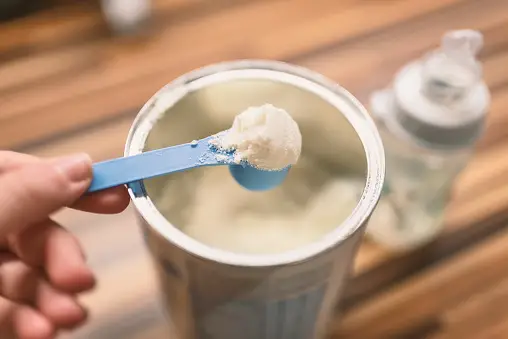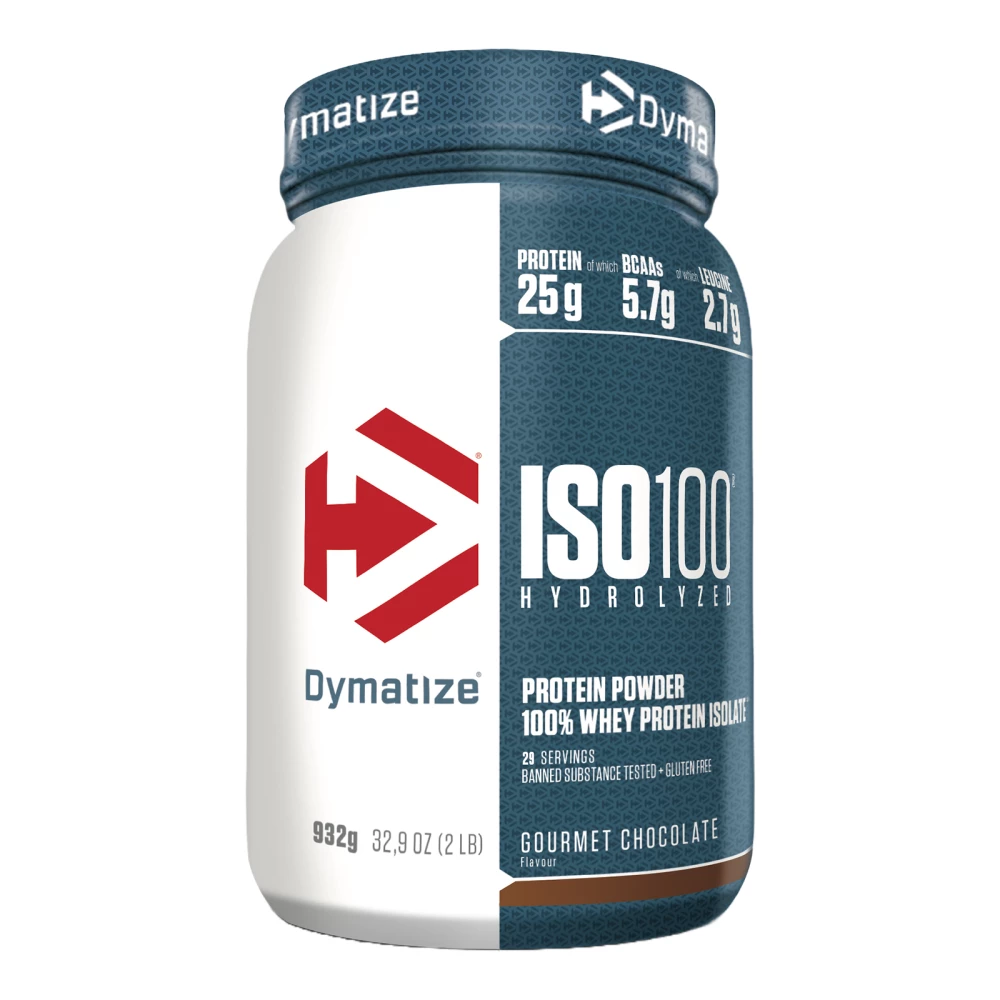The Truth About Whey Protein Powder with Creatine
Are you a fitness enthusiast looking to build muscle and improve your performance? You’re not alone. Many athletes, bodybuilders, and gym-goers turn to supplements to maximize their gains. But with so many options on the market, it can be challenging to know what’s safe and effective. In this blog post, we’ll dive into the science behind these supplements and discuss the pros and cons of each type of protein. We’ll also explore the dangers of consuming whey with creatine, potential health risks associated with creatine overdose, and why you should buy them separately. Additionally, we’ll provide a guide to buying high-quality whey and creatine separately and tips on how to safely incorporate them into your diet. Finally, we’ll answer the question: Can both of them be taken together safely? So let’s get started on uncovering the truth about protein powder with creatine.
Basics of Whey Protein and Creatine
Proteins and creatine play vital roles in the lives of athletes and bodybuilders. These supplements have the potential to enhance muscle mass and strength, making them an integral part of fitness regimes. Whey powder, rich in amino acids, supports muscle recovery and growth, while creatine supplementation improves performance during high-intensity workouts. By combining them, you can take your workouts to the next level, boosting stamina and reducing recovery time. It’s important to note that beginners, older men, and individuals engaged in resistance exercise can benefit from this combo.
Whey Protein vs Casein Protein
Whey protein powder with creatine is a popular supplement among fitness enthusiasts and athletes. When it comes to protein supplements, two of the most common types are whey and casein. While both are derived from milk, there are some key differences between them. It is quickly absorbed by the body, making it an ideal choice for post-workout recovery. On the other hand, casein protein is slowly digested, providing a sustained release of amino acids over several hours. This makes it a great option for those looking to build muscle mass or prevent muscle breakdown during periods of fasting or sleep. Ultimately, the choice will depend on your individual fitness goals and preferences.
Proteins and Creatine In Generating Endurance
Proteins play a vital role in muscle building, providing essential amino acids necessary for muscle growth and repair. Additionally, creatine supplementation enhances ATP production, improving muscle strength and endurance during high-intensity workouts. Whey powder aids in muscle recovery, reducing post-exercise muscle damage. Moreover, older individuals can benefit from these supplements in maintaining muscle mass. Combining both can further support muscle growth and improve athletic performance. With the right amount of both, athletes and bodybuilders can increase stamina, minimize recovery time, and maximize their potential.
https://www.ncbi.nlm.nih.gov/pmc/articles/PMC5469049/
Types of Whey Protein: Concentrate, Hydrolyzed, and Isolate
There are three main types of whey protein: concentrate, hydrolyzed, and isolate. Each type offers its own unique benefits and is suited to different dietary preferences. Whey concentrate contains a high percentage of whey and provides additional benefits such as glycine and amino acids for muscle repair. Hydrolyzed whey is easily digestible and rapidly absorbed by the body, making it ideal for post-workout recovery. On the other hand, whey isolate has a higher nutritional content with minimal lactose and fat, making it a great choice for those looking to minimize their intake of these components.
Pros and Cons
When it comes to whey protein powder with creatine, there are different types to consider. Whey concentrate is a cost-effective option, but it may have higher levels of lactose. On the other hand, hydrolyzed type is hypoallergenic and more easily digestible, but it tends to be more expensive. Whey protein isolate is low in lactose and fat, making it suitable for lactose-intolerant individuals. Concentrate offers a good balance of protein and other beneficial compounds, while isolate provides higher nutrition with fewer carbohydrates and fats. It’s important to weigh the pros and cons of each type before making a decision.
Protein Spiking in Whey Protein Powder with Creatine
It is a deceptive practice among some manufacturers, involves adding low-cost amino acids to inflate protein content in whey with creatine supplements. These non-essential amino acids can deceive consumers into thinking they’re getting more nutrition than they actually are. On the other hand, creatine monohydrate is commonly added to these supplements for its muscle-building benefits. Understanding the science behind spiking ensures that you’re getting the right amount of both for your fitness goals. By knowing what to look for and how to spot spiking, you can make informed choices and optimize your workout regimen.
How to Spot Protein Spiking in Supplements
To ensure the quality and accuracy of supplements, there are a few key factors to consider. Firstly, carefully examine the ingredient list for excessive amounts of certain amino acids, as this could indicate protein spiking. Secondly, look for third-party testing or certifications that validate the label’s accuracy. Additionally, it’s important to research the manufacturer’s reputation and quality control protocols. Be cautious when encountering supplements that list “protein blend” or “proprietary blend” without specific details. Opting for reputable brands that prioritize transparency and high-quality ingredients is crucial for selecting reliable supplements.
Dangers of Consuming Whey Protein with Creatine

Consuming whey protein powder with creatine without proper caution can have serious consequences. Overdosing on creatine can lead to dehydration, cramping, and even kidney damage. Additionally, excessive intake, especially from supplements, can strain the liver and kidneys. It is essential to follow recommended dosages and consult with a healthcare professional before incorporating these supplements into your routine. Individuals with pre-existing medical conditions should exercise extra caution. Moreover, it is crucial to maintain proper hydration when consuming whey protein powder with creatine supplements to mitigate the potential risks.
Potential Health Risks Associated
Excessive consumption of creatine can lead to gastrointestinal distress and muscle cramps. Prolonged and high doses of it may also affect kidney function, making it important for individuals with kidney disease or liver conditions to avoid them. It is crucial to be cautious when combining creatine with certain medications, as this may result in adverse effects. To mitigate potential health risks, it is essential to exercise moderation and adhere to recommended guidelines when using these supplements. Remember, always prioritize your health and consult a healthcare professional before starting any supplementation regime.
Don’t Buy Whey Protein Powder With Creatine
Customizing your supplement intake offers numerous benefits for optimizing muscle growth and recovery. When you separately purchase these supplements, you have the freedom to select the ideal choices based on your dietary preferences. This allows you to adjust the protein-to-creatine ratio, catering to your specific fitness goals. By tailoring your supplements to your needs, you ensure that you get sufficient amounts of both nutrients without any excess. This level of customization maximizes the effectiveness of your supplements, enhancing your stamina, reducing recovery time, and improving overall muscle cell development.
When it comes to buying high-quality supplements separately, there are a few key factors to consider.
- First, it’s important to understand the difference between both. Whey powders should have high-quality ingredients and minimal additives, ensuring you’re getting a pure source without unnecessary fillers.
- When it comes to creatine, look for micronized creatine monohydrate, as this form is known for better absorption by your muscle cells. Additionally, consider your dietary preferences and any medical conditions you may have when selecting the right supplements. Research reputable brands and read customer reviews to make an informed purchase decision.
Top Recommendations
When it comes to whey protein and creatine supplements, there are several top recommendations that athletes and bodybuilders swear by.
- Optimum Nutrition Gold Standard 100% Whey is a favorite choice due to its high-quality ingredients and minimal additives.
- Protein Factory’s Creatine Monohydrate 1000 grams is known for its pure and micronized creatine, providing optimal absorption.

- Dymatize ISO100 Hydrolyzed Whey Isolate is popular for its fast absorption, making it an excellent choice for high-intensity workouts.

- BSN Syntha-6 combines whey with casein for prolonged release, making it suitable for stamina and recovery time.

These recommendations will provide you with the necessary nutrients to support your fitness goals.
Dosage Guidelines and Best Practices

To optimize the benefits of whey protein powder with creatine, it is important to follow dosage guidelines and best practices. Aim for 20-30 grams of protein per serving, depending on your needs. When it comes to creatine supplementation, there is typically a loading phase followed by a maintenance phase. During the loading phase, take 20 grams of it per day and then switch to a maintenance dosage of 3-5 grams per day.
For optimal results, take it within 30 minutes after your workout to support muscle recovery and growth. It is also recommended to split your dosage throughout the day for better absorption.
Can Creatine And Protein Be Taken Together Safely?
Taking them together is safe and can enhance muscle growth and recovery. These supplements complement each other’s benefits, providing essential amino acids for muscle protein synthesis and increased energy during workouts. Always follow recommended dosages and consult with a healthcare professional if you have concerns.
Final Thoughts
Incorporating whey protein and creatine into your diet can have numerous benefits for muscle growth and athletic performance. It is important to prioritize high-quality ingredients and reputable brands when purchasing these supplements. Following dosage guidelines and consulting with a healthcare professional will ensure safe usage. Combining both can provide synergistic effects, especially during high-intensity workouts and heavy lifting. However, it’s crucial to remember that consistency and hydration are key when using these supplements. By following these guidelines, you can maximize the potential of them for better stamina, muscle recovery, and overall fitness.
https://pubmed.ncbi.nlm.nih.gov/20126965/
Conclusion
In conclusion, it is important to understand the basics of whey protein and creatine and their significance for athletes and bodybuilders. There are different types of whey protein, each with its pros and cons. It is crucial to be aware of spiking in supplements and the potential risks associated with consuming whey protein with creatine. Buying them separately allows you to customize your intake and ensure high quality. Incorporating both of them into your diet should be done safely, following dosage guidelines and best practices. While there is no harm in taking them together, it is essential to monitor your intake and consult with a healthcare professional if needed. Remember, finding the truth about whey protein powder with creatine lies in understanding the science and making informed choices for your fitness goals.

